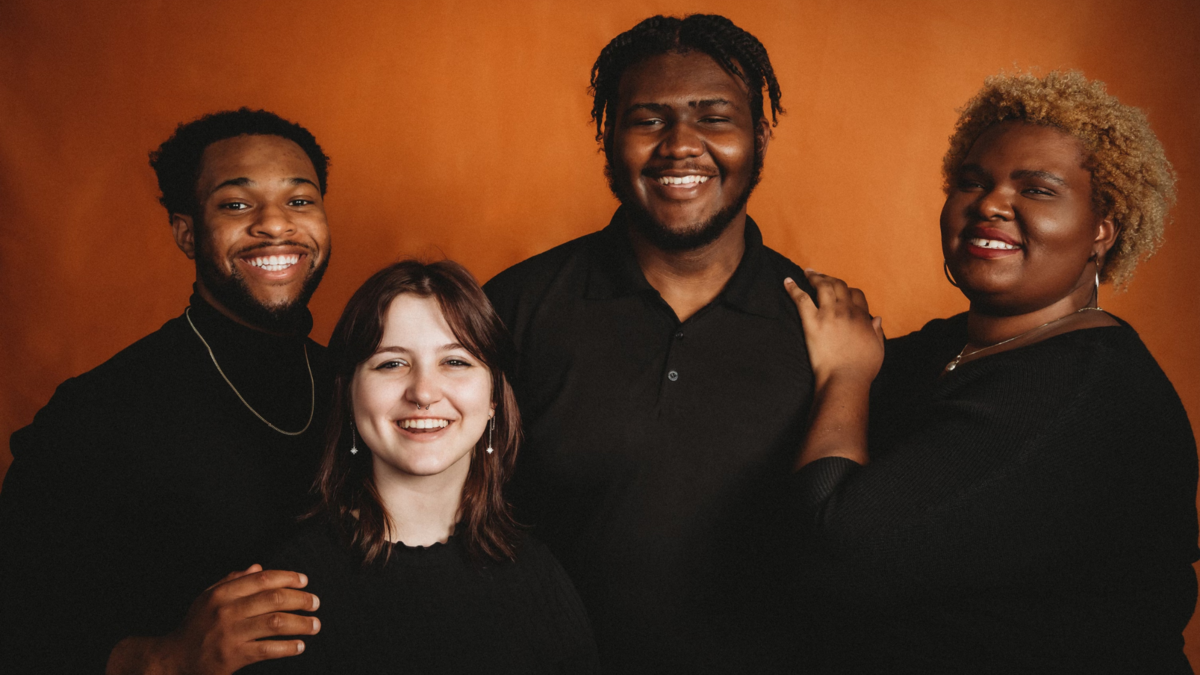ASU students bring Detroit to Tempe in final ASU theater show of the season

Pictured from left to right: Kristopher Swint, Gabi Myers, Arjun Paramore Jr. and Gianbari Deborah Deebom. Photo by Crestcencia Ortiz-Barnett
For many of the cast and crew, bringing “Detroit '67” to the stage at Arizona State University is personal.
Crestcencia Ortiz-Barnett will be directing “Detroit '67.” She is an ASU MFA theater directing student who is graduating in May, and she completed her PhD degree in education from the University of Arizona in spring 2023. Ortiz-Barnett said she is excited to bring this show to ASU.
“Directing this play has been like writing a love letter to myself, because like the playwright, I’m from Detroit,” Ortiz-Barnett said. “It means a lot to me to be able to do this show during the end of my educational career and going into my professional career — to do a show that tells a story about where I'm from.”
"Detroit '67"
7:30 p.m. April 5–6, 12–13
2 p.m. April 7, 14
Galvin Playhouse Theatre
Tickets must be purchased
through the Herberger Institute Box Office
“Detroit '67,” by Dominique Morisseau, tells the story of a brother and sister running an after-hours joint in Detroit during the time of the 1967 race riots. It is playing at the Galvin Playhouse Theatre on April 5–14 on the ASU Tempe campus.
“I grew with the remnants of 1967 being a daily reminder of the grit, grind and resilience that Detroiters have,” Ortiz-Barnett said. “I turned to theater as a teen as a source of refuge and found a knack for storytelling that centers Black lived experiences.”
Kristopher Swint, an undergraduate student studying theater, plays the role of Lank, one of the siblings in the show.
“I was born in Detroit,” said Swint. “A lot of my family still lives there, and they lived through this.”
Arjun Paramore Jr., an undergraduate student studying music theater while also pursuing a minor in business and a certificate in vocal pedagogy, plays the character Sly. He said the play helped him learn about his own family ties to Detroit and this time period.
“I learned a lot about my own heritage,” Paramore said. “My grandpa is from Detroit. He lived there at the time and lives there currently. It reignited my curiosity. I talked with him and learned so much.”
Motown Block Party
Noon–3 p.m. April 5
Nelson Fine Arts Plaza, Tempe campus
Paramore said audiences will feel joy alongside the heaviness of the play.
“This show is considered a dramatic play, but don’t expect the show to be dragged out and full of sadness,” said Paramore. “It shows the way African Americans thrived during that time and how they were finding their way to beauty in the situation.”
He also emphasized that Ortiz-Barnett has intentionally created safe spaces for the actors as they address topics of race, discrimination and violence. Ortiz-Barnett said her approach to directing emphasizes community. The result is a cast who care for and respect each other.
“At the soul of this play is family, unconditional love and a need to feel like you can contribute something to the world,” Ortiz-Barnett said. “I believe that we can all identify with this. It has been a joy for me, as a director, to be able to prioritize community building in our rehearsal process.”
Tickets for the show must be purchased through the Herberger Institute Box Office. The community is also invited to celebrate the opening of the show at a free Motown Block Party hosted by the ASU Black Theatre Organization from noon–3 p.m. on April 5 at Nelson Fine Arts Plaza.
More Arts, humanities and education

ASU professor's project helps students learn complex topics
One of Arizona State University’s top professors is using her signature research project to improve how college students learn science, technology, engineering, math and medicine.Micki Chi, who is a…

Award-winning playwright shares her scriptwriting process with ASU students
Actions speak louder than words. That’s why award-winning playwright Y York is workshopping her latest play, "Becoming Awesome," with actors at Arizona State University this week. “I want…

Exceeding great expectations in downtown Mesa
Anyone visiting downtown Mesa over the past couple of years has a lot to rave about: The bevy of restaurants, unique local shops, entertainment venues and inviting spaces that beg for attention from…

